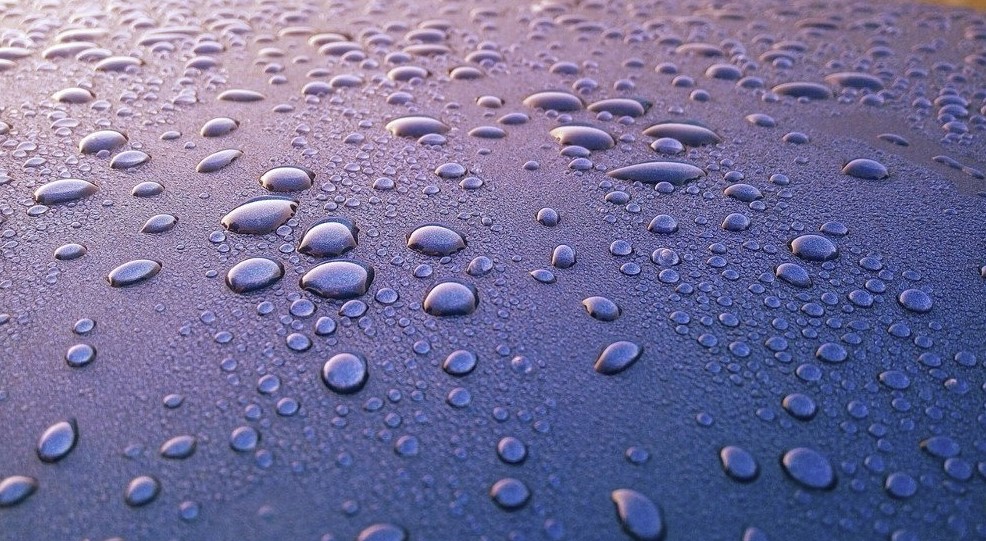Living in a humid house is both uncomfortable and unfit for your health. Problems associated with high humidity include dehydration, fatigue, and heatstroke, among others.
Generally, while many types of appliances can assist with dehumidification, you can also use natural items to achieve the same effect.

If you are a do-it-yourself kind of person or looking for a cheaper way out, these methods of dehumidifying your house can come in handy. Use any of these methods to reduce humidity in a house without a dehumidifier.
Contents
1. Using baking soda
Using baking soda is the best way to dehumidify your house naturally.
Hygroscopic in nature, it naturally draws in moisture from the air, thereby making it one of the most functional home remedies for absorbing moisture. Here is how you use it for dehumidification:
- Put some baking soda in several bowls
- Place them in different areas of the house
- After some time, stir the baking soda to increase absorption
This method is highly effective for small and enclosed places. Most noteworthy, you should remember to replace the baking soda when it all becomes moist for effective dehumidification.
2. Grow any of these plants indoors
Certain types of plants act as natural dehumidifiers. These plants decrease humidity as they need little sunlight or moisture to grow.
They can be placed indoors where they can dehumidify air and clean it as well.
These plants include reed palm, peace lily, cactus, tillandsia, spider plant, Boston fern, orchids, and English ivy. They absorb moisture from a room through their leaves.
Here are the steps on how to use the plants:
- Place the plant in a small pot filled with moist soil
- Place it in a room with high humidity
You can either place the plant on a counter or hang it on a wall. Either way, you will find them very helpful in getting rid of excess moisture in your house.
3. Using rock salt
Rock salt is another effective dehumidifier alternative that you can use in your house.
It naturally absorbs and stores moisture due to its hygroscopic nature and works efficiently like an electric dehumidifier. It, therefore, creates an excellent way to dehumidify a room without electricity.
To implement this method effectively, here is what you should do:
- Drill holes in a medium-sized bucket both on the sides and under it
- Place the drilled bucket inside a bigger non-drilled bucket
- Put the rock salt in the top bucket
- Place it on a stand in your house
The undrilled bucket will collect the moisture drawn by the crystals. To get the best results, pour out the absorbed liquid from the bottom bucket and replace the rock salt frequently.
Take caution, however, not to place the buckets on uncovered metal as the crystals may lead to corrosion.
4. Apply silica gel
Silica gel will help you dry out a room without a dehumidifier. Silica gel has a high surface area for the absorption of moisture and is often used as a drying agent due to its effective abilities.
Here is how to create your natural silica gel dehumidifier:
- Acquire a jar with a tight lid
- Drill small holes in the lid
- Put silica gel in the jar and close it with the lid
- Place the jar in an area in your house
The moisture levels will drastically drop, giving a humid-free environment.
5. Use calcium chloride
Calcium chloride is another handy item that can help you humidify your house naturally. Basically, a combination of calcium and chlorine gives it a high hygroscopic capacity to absorb moisture.
After absorbing moisture, it dissolves in it, creating a brine.
Here is how you can prepare a natural dehumidifier using calcium chloride:
- Put calcium chloride in a sock and tie the open end into a knot
- Tie a string on the knot
- Hang the sock appropriately to help humidify a room
- Place a vessel underneath the sock to collect the water
6. Increase ventilation
This is one of the easiest and most efficient ways you can use to dehumidify your house naturally. Proper and sufficient ventilation can be achieved by opening windows and doors.
It is especially effective for rooms in the house that are more prone to higher humidity levels.
The most common places include bathrooms and kitchens, where it helps to suck out excess moisture. Ideally, this works effectively when the moisture is lower outside than in the house.
You can dehumidify your house naturally by combining some simple building skills and natural products. These homemade humidifying methods are easy to implement, inexpensive, and natural.
Therefore, they provide no toxicity and are environmentally-friendly. Apply any of the above methods to enjoy a comfortable humid-free time.
Related Articles
